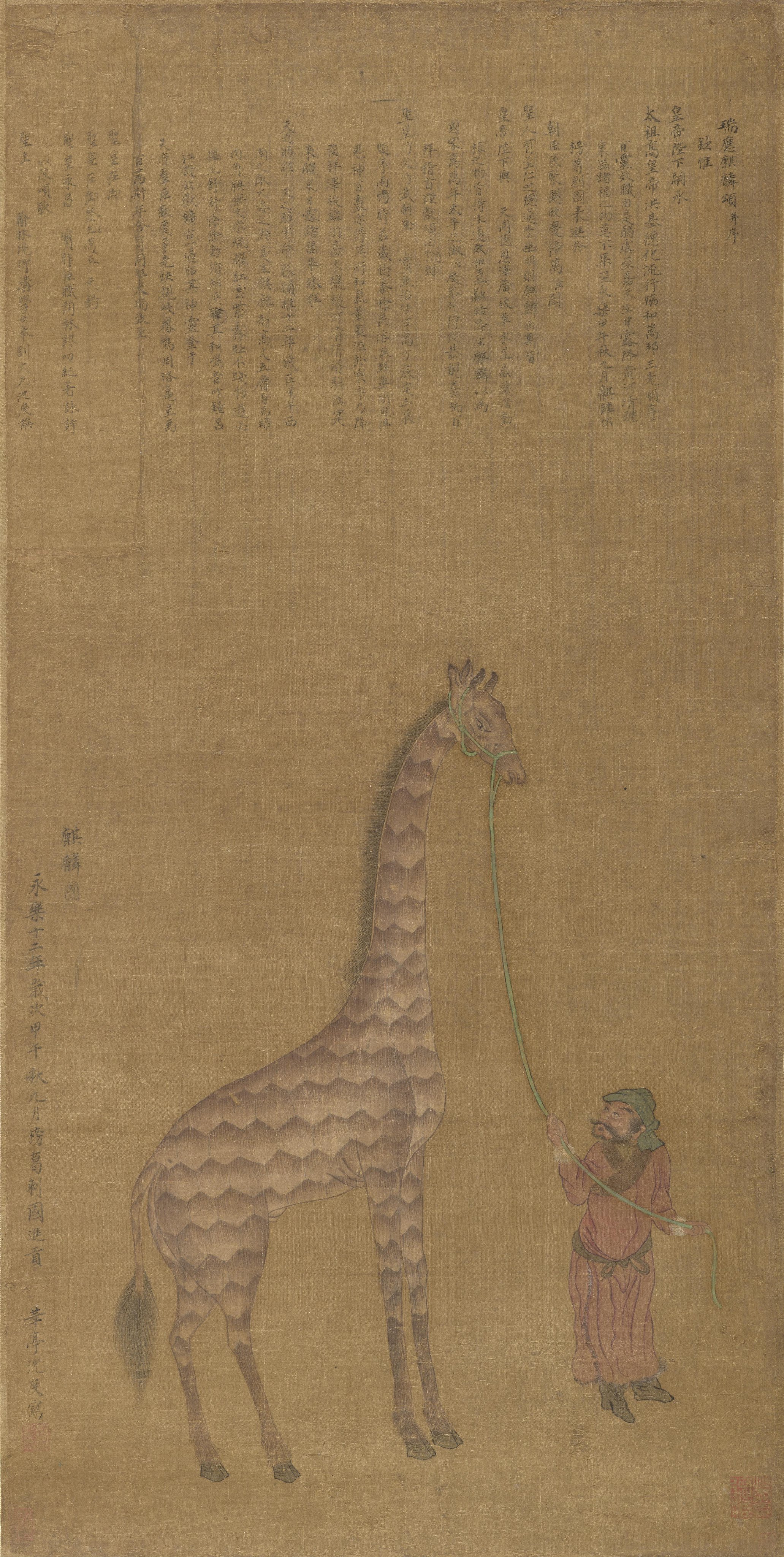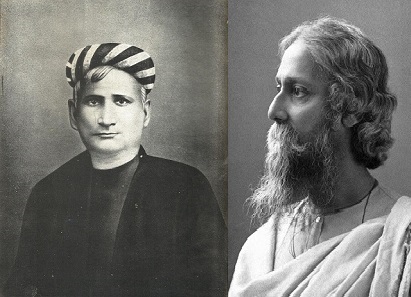|
Shah Muhammad Sagir
Shah Muhammad Sagir () was one of the earliest Bengali Muslim poets, if not the first. Life Shah Muhammad Sagir was a poet of the 14/15th century, during the reign of the Sultan of Bengal Ghiyasuddin Azam Shah. He was born to a Fakir family in Chittagong, the then cultural capital of Arakan. His best known work is Yusuf-Zulekha, which has commendatory verses for Ghiyasuddin Azam Shah. He was the court poet of Azam Shah and wrote the volume at his request. Although it has praise for the parents and teachers of the poet, it does not mention their names or residence. Shah Muhammad Sagir is considered to be the first writer to introduce Perso-Arabic Arabic (, , or , ) is a Central Semitic languages, Central Semitic language of the Afroasiatic languages, Afroasiatic language family spoken primarily in the Arab world. The International Organization for Standardization (ISO) assigns lang ... vocabulary into Bengali poetry. His works *'' Yusuf-Zulekha'' References ... [...More Info...] [...Related Items...] OR: [Wikipedia] [Google] [Baidu] |
Bengali Muslim
Bengali Muslims (; ) 'Mussalman'' also used in this work./ref> are adherents of Islam who ethnically, linguistically and genealogically identify as Bengalis. Comprising over 70% of the global Bengali population, they are the second-largest ethnic group among Muslims after Arabs. Bengali Muslims make up the majority of Bangladesh's citizens, and are the largest minority in the Indian states of West Bengal, Tripura and Assam. They speak or identify the Bengali language as their mother tongue. The majority of Bengali Muslims are Sunnis who follow the Hanafi school of jurisprudence. Due to its extensive trade contacts, Bengal has had a Muslim presence in the region since the early 8th century CE, but conquest of the Bengal region by the Delhi Sultanate brought Muslim rule to Bengal. The governors of the region soon broke away to form a Bengal Sultanate, which was a supreme power of the medieval Islamic East. European traders identified the Bengal Sultanate as "the richest ... [...More Info...] [...Related Items...] OR: [Wikipedia] [Google] [Baidu] |
Arabic
Arabic (, , or , ) is a Central Semitic languages, Central Semitic language of the Afroasiatic languages, Afroasiatic language family spoken primarily in the Arab world. The International Organization for Standardization (ISO) assigns language codes to 32 varieties of Arabic, including its standard form of Literary Arabic, known as Modern Standard Arabic, which is derived from Classical Arabic. This distinction exists primarily among Western linguists; Arabic speakers themselves generally do not distinguish between Modern Standard Arabic and Classical Arabic, but rather refer to both as ( "the eloquent Arabic") or simply ' (). Arabic is the List of languages by the number of countries in which they are recognized as an official language, third most widespread official language after English and French, one of six official languages of the United Nations, and the Sacred language, liturgical language of Islam. Arabic is widely taught in schools and universities around the wo ... [...More Info...] [...Related Items...] OR: [Wikipedia] [Google] [Baidu] |
15th-century Bengali Poets
The 15th century was the century which spans the Julian calendar dates from 1 January 1401 (represented by the Roman numerals MCDI) to 31 December 1500 (MD). In Europe, the 15th century includes parts of the Late Middle Ages, the Early Renaissance, and the early modern period. Many technological, social and cultural developments of the 15th century can in retrospect be seen as heralding the " European miracle" of the following centuries. The architectural perspective, and the modern fields which are known today as banking and accounting were founded in Italy. The Hundred Years' War ended with a decisive French victory over the English in the Battle of Castillon. Financial troubles in England following the conflict resulted in the Wars of the Roses, a series of dynastic wars for the throne of England. The conflicts ended with the defeat of Richard III by Henry VII at the Battle of Bosworth Field, establishing the Tudor dynasty in the later part of the century. Constant ... [...More Info...] [...Related Items...] OR: [Wikipedia] [Google] [Baidu] |
Bengal Sultanate Officers
Bengal ( ) is a Historical geography, historical geographical, ethnolinguistic and cultural term referring to a region in the Eastern South Asia, eastern part of the Indian subcontinent at the apex of the Bay of Bengal. The region of Bengal proper is divided between the modern-day sovereign nation of Bangladesh and the States and union territories of India, Indian states of West Bengal, and Karimganj district of Assam. The ancient Vanga Kingdom is widely regarded as the namesake of the Bengal region. The Bengali calendar dates back to the reign of Shashanka in the 7th century CE. The Pala Empire was founded in Bengal during the 8th century. The Sena dynasty and Deva dynasty ruled between the 11th and 13th centuries. By the 14th century, Bengal was absorbed by Muslim conquests in the Indian subcontinent. An independent Bengal Sultanate was formed and became the eastern frontier of the Islamic world. During this period, Bengal's rule and influence spread to Assam, Arakan, Tri ... [...More Info...] [...Related Items...] OR: [Wikipedia] [Google] [Baidu] |
Year Of Birth Unknown
A year is a unit of time based on how long it takes the Earth to orbit the Sun. In scientific use, the tropical year (approximately 365 solar days, 5 hours, 48 minutes, 45 seconds) and the sidereal year (about 20 minutes longer) are more exact. The modern calendar year, as reckoned according to the Gregorian calendar, approximates the tropical year by using a system of leap years. The term 'year' is also used to indicate other periods of roughly similar duration, such as the lunar year (a roughly 354-day cycle of twelve of the Moon's phasessee lunar calendar), as well as periods loosely associated with the calendar or astronomical year, such as the seasonal year, the fiscal year, the academic year, etc. Due to the Earth's axial tilt, the course of a year sees the passing of the seasons, marked by changes in weather, the hours of daylight, and, consequently, vegetation and soil fertility. In temperate and subpolar regions around the planet, four seasons ar ... [...More Info...] [...Related Items...] OR: [Wikipedia] [Google] [Baidu] |
Bengali Male Poets
Bengali or Bengalee, or Bengalese may refer to: *something of, from, or related to Bengal, a large region in South Asia * Bengalis, an ethnic and linguistic group of the region * Bengali language, the language they speak ** Bengali alphabet, the writing system ** Bengali–Assamese script *** Bengali (Unicode block), a block of Bengali characters in Unicode Other usage People * Abdul Wahid Bengali, 19th-century theologian * Athar Ali Bengali, politician and teacher * Bengali-Fodé Koita, Guinean footballer * Bengali Keïta, Guinean centre-back * Bengali Singh, Indian politician * Izzatullah Bengali, 18th-century Persian language author * Mohamed Bengali, Ivorian footballer * Shah Nuri Bengali, 18th-century Sufi and author Places * Bengali Market, a market in New Delhi, India * Bengali, Nancowry, a village in Andaman and Nicobar Islands, India Miscellaneous * Bangali River, river in northern Bangladesh * , a ship launched in 1837 and wrecked in 1951 * Bengali, a fictional ... [...More Info...] [...Related Items...] OR: [Wikipedia] [Google] [Baidu] |
Bengali Poetry
Bengali poetry is a rich tradition of poetry in the Bengali language and has many different forms. Originating in Bengal, the history of Bengali poetry underwent three successive stages of development: poetry of the early age (like '' Charyapad''), the Medieval period and the age of modern poetry. All ages have seen different forms of poetry and poetical tradition. It reached the pinnacle during the Bengali Renaissance period although it has a rich tradition and has grown independent of the movement. Major Bengali Poets throughout the ages are Chandidas, Krittivas Ojha, Maladhar Basu, Bijay Gupta, Mukundaram Chakrabarti, Kashiram Das, Alaol, Syed Sultan, Ramprasad Sen, Michael Madhusudan Dutt, Nabinchandra Sen, Rabindranath Tagore, Dwijendralal Ray, Satyendranath Dutta, Kazi Nazrul Islam, Jibanananda Das, Jasimuddin, Sukanta Battacharya, Al Mahmud, Joy Goswami. Introduction Poetry in the colloquial dialect of Bengal first originated from Prakrit, and based ... [...More Info...] [...Related Items...] OR: [Wikipedia] [Google] [Baidu] |
Farsi
Persian ( ), also known by its endonym Farsi (, Fārsī ), is a Western Iranian language belonging to the Iranian branch of the Indo-Iranian subdivision of the Indo-European languages. Persian is a pluricentric language predominantly spoken and used officially within Iran, Afghanistan, and Tajikistan in three mutually intelligible standard varieties, respectively Iranian Persian (officially known as ''Persian''), Dari Persian (officially known as ''Dari'' since 1964), and Tajiki Persian (officially known as ''Tajik'' since 1999).Siddikzoda, S. "Tajik Language: Farsi or not Farsi?" in ''Media Insight Central Asia #27'', August 2002. It is also spoken natively in the Tajik variety by a significant population within Uzbekistan, as well as within other regions with a Persianate history in the cultural sphere of Greater Iran. It is written officially within Iran and Afghanistan in the Persian alphabet, a derivative of the Arabic script, and within Tajikistan in the Tajik alpha ... [...More Info...] [...Related Items...] OR: [Wikipedia] [Google] [Baidu] |
Asiatic Society Of Bangladesh
The Asiatic Society of Bangladesh is a non political and non profit research organisation registered under both Society Act of 1864 and NGO Affairs Bureau, Government of Bangladesh. The Asiatic Society of Bangladesh was established as the Asiatic Society of East Pakistan in Dhaka in 1952 by a number of Muslim leaders, and renamed in 1972. Ahmed Hasan Dani, a noted Muslim historian and archaeologist of Pakistan played an important role in founding this society. He was assisted by Muhammad Shahidullah, a Bengali linguist. The society is housed in Nimtali, walking distance from the Curzon Hall of Dhaka University, locality of Old Dhaka. History Asiatic Society of Bangladesh traces its origins to The Asiatic Society, which was founded by Sir William Jones in 1784. Some of scholars of the Asiatic Society moved to Dhaka, capital of East Bengal, after the Partition of India. Ahmad Hasan Dani, professor of history at the University of Dhaka, proposed the idea of establishing a ... [...More Info...] [...Related Items...] OR: [Wikipedia] [Google] [Baidu] |
Yusuf-Zulekha
''Yusuf-Zulekha'' () is a 15th-century Bengali romantic story in verse written by Shah Muhammad Sagir, which is considered one of the greatest literary works of medieval "golden era" of Bengali literature; when Sagir was a court-poet of the Sultan of Bengal, Ghiyasuddin Azam Shah Ghiyasuddin A'zam Shah (, ) was the third Sultan of Bengal and the Ilyas Shahi dynasty. He was one of the most prominent medieval Bengali sultans. He established diplomatic relations with the Ming Empire of China, pursued cultural contacts with .... Sagir wrote the story at the request of the Sultan. References External links * 15th-century books Bengali-language literature {{poem-stub ... [...More Info...] [...Related Items...] OR: [Wikipedia] [Google] [Baidu] |
Arakan
Arakan ( or ; , ), formerly anglicised as Aracan, is the historical geographical name for the northeastern coastal region of the Bay of Bengal, covering present-day Bangladesh and Myanmar. The region was called "Arakan" for centuries. It is generally associated with the Rakhine State in Myanmar. The people of the region were known as the Arakanese. When Burma gained independence from Britain in 1948, the Burmese part of the region was called Arakan State. The Burmese military junta changed its name to Rakhine State in 1989 – along with the country's name being changed from Burma to Myanmar, and its capital name from Rangoon to Yangon. Arakan's first states can be traced to the 4th century. Arakan was one of the first Indianised kingdoms in Southeast Asia. It was home to the sacred Mahamuni sculpture of Buddha, which was later transferred to Mandalay by Burmese conquerors in the 18th century. For 356 years between 1428 and 1784, Arakan was ruled by the Kingdom of Mrauk ... [...More Info...] [...Related Items...] OR: [Wikipedia] [Google] [Baidu] |






